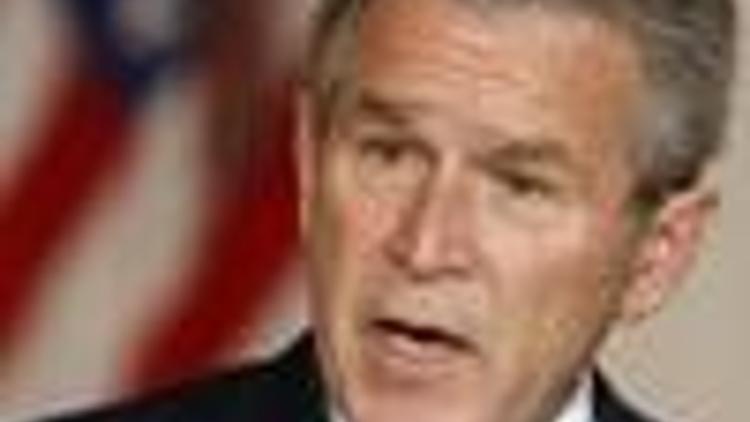AFP
Oluşturulma Tarihi: Temmuz 22, 2008 11:00
The United States said Monday it was ready to hold rare talks with two visiting key Syrian officials this week, in another signal of Washington’s recent policy shift to engage directly with its enemies.
Syria is on a U.S. blacklist of state sponsors of terrorism.
Riad Daoudi, Syrian lead negotiator with Israeli officials in Turkey and legal adviser to the Syrian foreign ministry, and Ahmad Samir al-Taki, a consultant to the Syrian prime minister, are in Washington on a private trip.�
Part of a four-member group from Damascus, they will participate at a forum "Engaging Syria: new negotiations, old challenges" at Washington-based Brookings Institution on Wednesday.
Their visit is sponsored by Search for Common Ground, an international non-governmental organization, headquartered in Washington and Brussels, which had sought a meeting for them with the State Department.
"It is customary for us to receive such visitors and Near Eastern Assistant Secretary of State David Welch is prepared to meet with them," Stat Department spokesman Gonzalo Gallegos told reporters.
But he stressed that they were not official talks, as Daoudi and Al-Taki "will be acting in their private capacity."
Still, the proposed meeting comes in the wake of a tactical shift in the Bush administrations Middle East dealings following the participation of the State Departments number three official, William Burns, in talks in Geneva last week over Iran’s nuclear program.
Iran is together with North Korea in what Washington calls an "axis of evil."
Secretary of State Condoleezza Rice will come face to face this week with North Korea’s foreign minister -- their first encounter -- as part of informal ministerial talks among six nations involved in ending Pyongyang’s nuclear weapons drive.
Gallegos said the precise date for the talks with the Syrian officials had not been determined yet.
Welch in his talks would explain "our policies and positions and hoping that all participants in that meeting will return home with a clear understanding of why the U.S. government has its policies," a State Department official said, speaking on condition of anonymity.
The State Department last week welcomed a decision by Lebanon and Syria to open diplomatic relations announced during a landmark visit by Syrian President Bashar al-Assad to France.
Syria withdrew its troops from Lebanon in 2005 in the aftermath of the assassination of former Lebanese premier Rafiq Hariri, ending a military presence of nearly three decades.
Syria was widely blamed for the killing but denies involvement.
"Unless and until Syria and the United States reach a grand bargain, the Lebanese will continue to pay the price," Theodore Kattouf, a former U.S. ambassador to Syria, said in a recent report.
He charged that Iran and Syria were in an alliance to thwart U.S. and Israeli objectives in the region.
Key U.S. ally Israel has been holding indirect negotiations with Syria, sponsored by Turkey after an eight-year freeze.
"It is important that a new U.S. administration work with Israel and our Arab allies to concoct a strategy that can pry Syria away from Iran," said Kattouf, a member of the board of Search for Common Ground.
Washington will continue to limit its diplomatic engagement "unless Syria takes concrete actions to end its destabilizing tactics in the region," the State Department said after Assad’s landmark trip to France.


